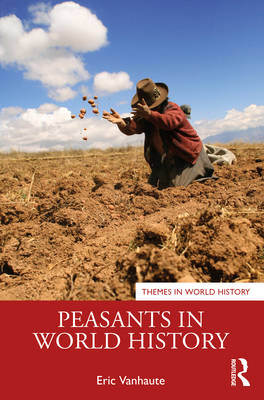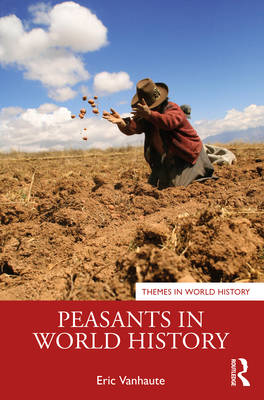
- Afhalen na 1 uur in een winkel met voorraad
- Gratis thuislevering in België vanaf € 30
- Ruim aanbod met 7 miljoen producten
- Afhalen na 1 uur in een winkel met voorraad
- Gratis thuislevering in België vanaf € 30
- Ruim aanbod met 7 miljoen producten
Omschrijving
This is the first world history of peasants. Peasants in World History analyzes the multiple transformations of peasant life through history by focusing on three primary areas: the organization of peasant societies, their integration within wider societal structures, and the changing connections between local, regional and global processes.
Peasants have been a vital component in human history over the last 10,000 years, with nearly one-third of the world's population still living a peasant lifestyle today. Their role as rural producers of ever-new surpluses instigated complex and often-opposing processes of social and spatial change throughout the world. Eric Vanhaute frames this social change in a story of evolving peasant frontiers. These frontiers provide a global comparative-historical lens to look at the social, economic and ecological changes within village-systems, agrarian empires and global capitalism. Bringing the story of the peasantry up through the modern period and looking to the future, the author offers a succinct overview with students in mind.
This book is recommended reading to anyone interested in the history and future of peasantries and is a valuable addition to undergraduate and graduate courses in World History, Global Economic History, Global Studies and Rural Sociology.
Specificaties
Betrokkenen
- Auteur(s):
- Uitgeverij:
Inhoud
- Aantal bladzijden:
- 146
- Taal:
- Engels
- Reeks:
Eigenschappen
- Productcode (EAN):
- 9780415740944
- Verschijningsdatum:
- 23/03/2021
- Uitvoering:
- Paperback
- Formaat:
- Trade paperback (VS)
- Afmetingen:
- 152 mm x 229 mm
- Gewicht:
- 217 g

Alleen bij Standaard Boekhandel
Beoordelingen
We publiceren alleen reviews die voldoen aan de voorwaarden voor reviews. Bekijk onze voorwaarden voor reviews.











